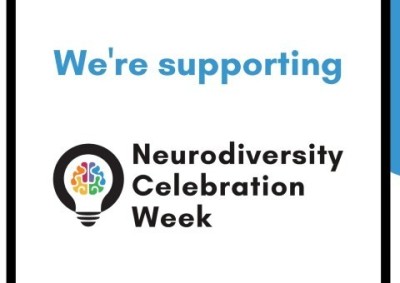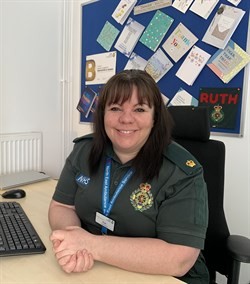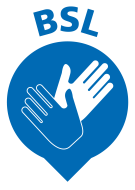North East Ambulance Service marks Neurodiversity Celebration Week

North East Ambulance Service is shining a light on its neurodiverse workforce and the support in place for anyone who needs additional support as part of Neurodiversity Celebration Week.
Neurodiversity describes a range of long-term conditions that can impact on a person's brain functions. They can affect the way we think, move, process information and communicate.
Neurodiversity has a wide spectrum that covers a range of hidden neurological conditions, such as but not limited to Autism Spectrum, Dyslexia, Dyspraxia, ADHD, Tourette’s and social anxiety.
For some people, their neurodivergence can mean that they are better at some things than many other people and for others additional support or adjustments are required.
Karen O’Brien, director of people and development and deputy chief executive at NEAS, said: “It’s vitally important to us that our colleagues feel able to bring their whole self to work and that our patients feel they have been treated fairly.
“We know that one size certainly doesn’t fit all and that is especially true when it comes to our neurodiverse colleagues. Whilst we realise that not everyone embraces their neurodiversity, for a range of different reasons, it is important that the offer of support is there.
“Over recent years, we have made several improvements to the support on offer for colleagues who have a neurodiversity however we know more can be done.
“Neurodiversity Celebration Week provides us with an opportunity to reflect on what we’ve achieved so far and ask you for your feedback so we can understand how we’re doing so we can continue to learn and improve for our people.”
Recent achievements have included:
- We are a Disability Confident Leader employer, ensuring our work is externally assessed and verified and introducing opportunities to learn and grow
- We have implemented a health and carers passport to allow colleagues to support our colleagues who require additional support
- We have delivered reasonable adjustment sessions to staff and managers to ensure people can get help and support
- We were the first ambulance service to become Dyslexia Smart, recognition from the British Dyslexia Association to organisations that are keen to make their dyslexic colleagues feel valued and achieve their potential. We are also the first and only business to be awarded this for the second year in a row, and are now working with BDA to help them develop a road map of what Dyslexia Smart beyond year two looks like
- Key personnel within the organisation have undertaken BDA e-learning and our disability staff network chair is completing BDA training to become a workplace assessor
- A dyslexia mentor/champion is available for anyone who needs support and advice, with further training planned on making reasonable adjustments.
- Appraisal documentation has been re-designed with neurodiversity in mind, including the ability to change the font and formatting of the document to ensure maximum read-ability and ease of information processing for those with dyslexia or information processing struggles.
- We have improved our recruitment and training processes to support neurodiverse people, including offering bespoke support sessions to candidates
- We have refreshed our recruitment skills training to ensure our managers are aware of the needs of neurodiverse candidates when interviewing for roles in NEAS
- We have created a dyslexia referral process for colleagues and offer diagnostic assessment with support from external providers. Where appropriate, we can also offer further referrals for workplace assessments
- Our Emergency Operations Centre trainers have now embedded their learning from our Dyslexia Working Group into their training material for new starters and sign post their dyslexic learners to the working group
- We are reviewing the technology available to neurodiverse colleagues to make their work easier
- As recognition for all our hard work, the national Ambulance Disability Network has asked our disability staff network to lead on developing reasonable adjustments across other ambulance trusts throughout the UK
- We have recruited a mental health practitioner
- We have delivered learning sessions to help improve colleagues’ knowledge and awareness of autism
Growing up with dyslexia
Locality manager Ruth Corbett has known since she was around 18 that she was dyslexic, but didn’t seek a formal assessment until two years ago when the demands of her new role led to her feeling she needed more support.

“Growing up in the 80s was really difficult because dyslexia wasn’t recognised,” she said.
“They dealt with us by putting us on what children dubbed the ‘thicky’ table (children were cruel) – a table of other kids with the same struggles as you – and we weren’t nurtured or helped very much. As a result, I left school with very little in the way of qualifications and had to work really hard prior to joining NEAS and throughout my career to get to where I am now.
“The stigma I grew up with left me too ashamed and embarrassed to say I didn’t understand something; the way I tackled training within NEAS was by learning from other people and by reading the books over and over again until I understood it and I flew through my paramedic exams.
“Fortunately, I’m very good at talking so I could always get through to a patient. The only thing I would struggle with operationally would be quickly trying to decipher what for example a discharge letter said to make sure I was giving the right care to a patient. I would usually give it a read through and then ask a colleague to have a read through after me.
“As I moved further up my career, I found it increasingly difficult – you’re regularly sent large amounts of documentation, often with very little time to read through it. It was finally when I was thinking about applying to go up to the next level that I had the courage to say ‘I need help’ and was referred to Dyslexia North East through NEAS.
“I was 43 when I was formally diagnosed and it was really quite emotional. I may have known since I was 18 but the stigma I had faced and the struggles I had experienced made me scared that the door would close on my career because of my dyslexia and that’s a horrible feeling.
“I don’t want anybody to struggle, especially if they had the same start to their education that I had.
“I am now in a position to be able to help people like me who are maybe struggling with their portfolio or something else and I can help them get that assessment and any other support they require within the trust.
“I want people to never give up because look where I am now. It’s never too late to learn and it’s never too late to ask for help because there is help out there.
“I also want anybody without a neurodiversity to be mindful of how your behaviours affect others – that throwaway comment about someone’s spelling or grammar– can deeply affect those who do have one. Be kind, always, and patient. It costs nothing to be nice.”
If you are interested in applying for a role at NEAS and would like to learn more about the support our recruitment team can offer you, please e-mail recruitment

